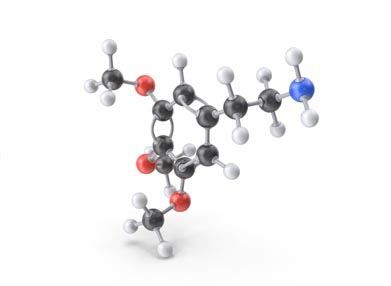In a way, peyote is a street name for the drug since it is the name of the cactus, and the hallucinogen is called mescaline. But there are other street names that refer to the drug. One common street name for peyote or mescaline is buttons, after the dried buttons from the peyote cactus. Other common street names for the drug include cactus, mesc, and peyoto.
The effects and dangers of mescaline and of mescaline addiction are similar to those of LSD, psilocybin, and PCP. As with all hallucinogens, mescaline affects how someone perceives reality. The primary symptoms are hallucinations, altered perceptions of space and time, altered body image, and illusions.
The substance can cause a euphoria that can be followed by anxiety. Peyote use can also cause intense nausea and vomiting, pupil dilation, increased heart rate and blood pressure, higher body temperature and perspiration, headaches, weakness, and impaired coordination. A recent study on DrugAbuse.gov noted that mescaline has been observed to cause fetal abnormalities.
The long-term effects of peyote are not yet clearly understood. Typical long-term effects of hallucinogens, including visual disturbances, mood changes, paranoia, and flashbacks, are often present in those who use peyote recreationally. A recent study on DrugAbuse.gov revealed that there seem to be no ill long-term effects in Native Americans who use peyote regularly in religious ceremonies, but the results are not transferable to those who abuse mescaline and use it for recreation.
Mescaline can cause a sense of euphoria, which is a state of intense happiness or excitement. A typical hallucinogenic dosage for mescaline is between 0.3 and 0.5 grams, and its effects—including euphoria—can last for 12 hours, according to
DrugAbuse.gov. The prolonged state of euphoria is why some people choose to use hallucinogens, and it also causes some people to abuse peyote, leading to addiction.
Hallucinogens such as mescaline can become addictive. The addiction is usually to the psychological effects brought on by mescaline rather than a chemical addiction. Though the research has been limited, there is evidence of mescaline tolerance and the potential for a mescaline overdose, according to DrugAbuse.gov.



